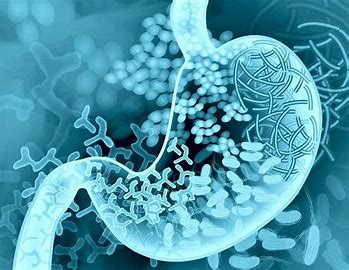The Gut Microbiome: A Foundation for Wellness

The human gut is home to a vast and complex community of trillions of microorganisms, collectively known as the gut microbiome. These tiny but mighty organisms—including bacteria, fungi, viruses, and other microbes—play a critical role in maintaining overall health and well-being. Often referred to as the body’s “second brain,” the gut microbiome is now recognised as a foundational component of physical, mental, and emotional wellness.
One of the most vital roles of the gut microbiome is supporting digestion and nutrient absorption. Beneficial bacteria in the gut help break down food, extract essential nutrients, and synthesise important vitamins such as B12, K, and folate. Without a balanced and diverse microbiome, the body struggles to properly digest food and absorb the nutrients it needs, leading to deficiencies that can affect every system in the body.
Beyond digestion, the gut microbiome plays a key role in regulating the immune system. Approximately 70% of the immune system resides in the gut, where it constantly interacts with microbial communities. A healthy microbiome acts like a vigilant security team—supporting immune responses, identifying potential threats, and preventing the overreaction of the immune system, which is often linked to autoimmune conditions and chronic inflammation.
Emerging research is also highlighting the profound connection between the gut and the brain, often referred to as the gut-brain axis. The microbiome communicates with the brain through a complex network of nerves, hormones, and chemical messengers. This communication can influence mood, stress responses, and even cognitive function. Certain strains of gut bacteria are involved in the production of neurotransmitters such as serotonin and dopamine—key regulators of mood and emotional balance. An imbalance in gut bacteria, known as dysbiosis, has been linked to anxiety, depression, and other mental health challenges.
Maintaining a healthy gut microbiome is, therefore, essential for holistic wellness. Diet plays a central role in shaping the microbiome. A fibre-rich diet full of whole foods, fruits, vegetables, legumes, and fermented foods like yoghurt, kefir, kimchi, and sauerkraut helps nourish beneficial bacteria. On the other hand, highly processed foods, refined sugars, and frequent antibiotic use can disrupt microbial balance and decrease diversity.
Lifestyle factors such as stress management, quality sleep, physical activity, and time in nature also significantly impact gut health. Chronic stress, for instance, can weaken the gut lining and shift microbial populations, while practices like mindfulness, breathwork, and yoga have been shown to support gut-brain communication and improve overall microbiome health.
As we continue to deepen our understanding of the microbiome, it becomes increasingly clear that nurturing our gut is not just about avoiding digestive discomfort—it’s about building the foundation for lifelong health and vitality. By tuning into the needs of this internal ecosystem, we can create a ripple effect that enhances not only physical resilience, but emotional balance and mental clarity as well. In a world that often encourages external solutions, the gut reminds us that true wellness begins within